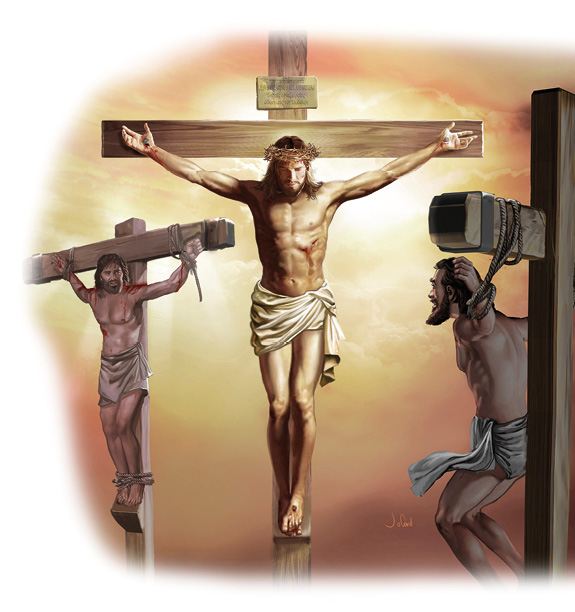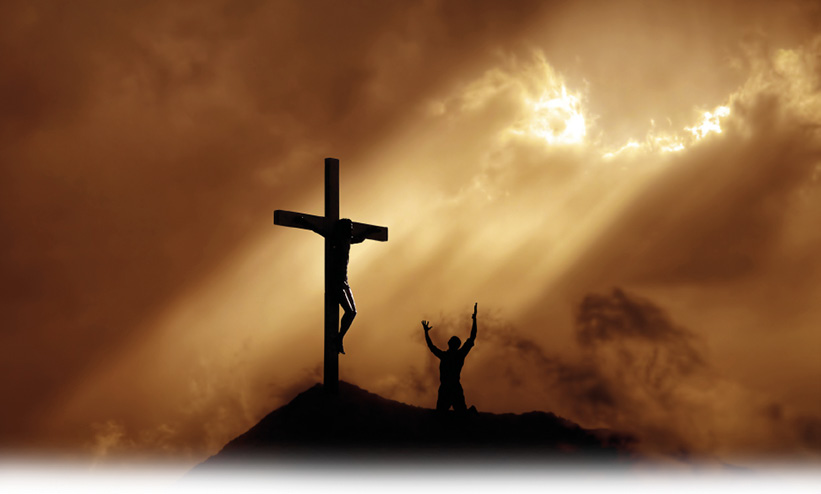

Francisco de Assis Pereira murdered 11 women after raping them in a park on the outskirts of Sao Paulo (Brazil). His strategy was the same in every case. He would find his victims in supermarkets and at bus stops and introduce himself as a talent scout who discovers beautiful women for a modeling agency. Then, under the pretense of taking their photographs, he would take them to the park where he would rape and strangle them with a rope. The bodies of eight murdered women were found within a radius of 200 meters.
In police reports, Francisco de Assis appears as one of the worst psychopaths in the history of Brazil. Tips leading to the murderer (who worked as a motorcycle courier) were provided by seven other women attacked by the maniac. These women managed to survive by chance. Through the information given by these victims, a composite sketch was made of the murderer and was disseminated through mass media.
The search for Pereira lasted 23 days until he was arrested by coincidence at the border between Brazil and Argentina, 1,500 kilometers away from Sao Paulo. After crossing the Uruguay River, the boundary between both countries, Francisco asked a local fisherman for lodging, who had seen the news on television and called the police.1 During the trial, defense attorneys insisted that Francisco was a psychopath without any notion of the facts2 until Francisco himself said to the judge: “I never told anyone this. I have a killer beast inside me. It is an ugly, wicked beast I cannot control. There are days when I do not leave home because I know the beast will awaken. I go to bed, cover my head with the blanket, and pray so that I may be able to control myself. But I cannot.”
The expression “a killer beast,” which Francisco said he had inside him, is horrifying. Indeed, since the entrance of sin into the world, all human beings have a “beast” within. It may not necessarily be a “killer,” but it is an uncontrollable beast that leads us to do what we do not want to do. More than one human being, upon seeing the terrible consequences of destructive decisions has cried asking: “Why did I do it?” And he has been unable to find an answer. Even the giant of Christianity, the apostle Paul, confessed: “I do not understand what I do. For what I want to do I do not do, but what I hate I do. And if I do what I do not want to do, I agree that the law is good. As it is, it is no longer I myself who do it, but it is sin living in me. For I know that good itself does not dwell in me, that is, in my sinful nature. For I have the desire to do what is good, but I cannot carry it out. For I do not do the good I want to do, but the evil I do not want to do – this I keep on doing. Now if I do what I do not want to do, it is no longer I who do it, but it is sin living in me that does it. So I find this law at work: Although I want to do good, evil is right there with me. For in my inner being I delight in God’s law; but I see another law at work in me, waging war against the law of my mind and making me a prisoner of the law of sin at work within me. What a wretched man I am! Who will rescue me from this body that is subject to death?” (Rom. 7:15-24).
This last phrase is the piercing cry of those who desire to behave in a proper manner, but cannot, because in them exists “a beast” that leads them to do what they do not want to do. Paul says: “the sin living in me.” What is he referring to when he mentions sin as the cause of all his problems? What is sin? What is the best way to define it? Toward that end, we have to read several verses of the Bible.
We will begin with Genesis 3. It does not define sin; instead, it describes the sinful behavior of humanity. From such behavior we can deduce what sin is.
What happened in Eden? Adam and Eve found themselves tempted to eat the fruit God had told them did not belong to them. In reality, nothing about the fruit was mysterious. The problem did not lie in the fruit itself, but in the distrust of human beings. God said one thing and they did another. We call this behavior rebelliousness, disobedience, or insubordination to divine authority. John defines sin as breaking the law (1 John 3:4).
However, one aspect of sin must remain clear. It relates to the first part of the passage from John: He says: “Whoever commits sin also commits lawlessness, and sin is lawlessness” (1 John 3:4, NKJV). If John says: “also commits lawlessness,” it is because sin, before becoming a transgression of the law, is something else.

Let’s return to Eden. Before eating the fruit, Adam and Eve had separated from God and had gone their own way. They voluntarily approached the tree God had warned them not to touch. So when the serpent presented the fruit to Eve, she, before eating it, doubted God’s word. The Creator had indicated that if she ate from that tree she would die, but the serpent ruined the divine command. What is more, it cunningly assured her that if she tasted the fruit, she would become like God. Eve opted to believe the word of the serpent rather than the Word of God. She tried to be happy in her way. She did not eat from the tree intending to die. Her ambition was to be equal to God! However, she ended up bringing death to herself and to humanity.
BIBLICAL TERMS TRANSLATED FOR “SIN”
In the Bible, the concept of sin is very wide. That is why it is important to know its different meanings.
WORD |
MEANING |
REFERENCE |
Hattat (Hebrew) |
“To miss the mark,” “to miss the target.” The idea is that God’s rules are not followed. |
Judges 20:16; Job 5:24; Leviticus 5:5, 16; Psalm 51:4 |
‘Awôn (Hebrew) |
Connotes a wrong intention, “wickedness” before God. Carries the notion of twisting. Additionally, it refers to falsehood, deception, and vanity. |
Genesis 4:13; 15:16: Lamentations 3:9; Psalm 36:3; Proverbs 22:8 |
Peša‘ (Hebrew) |
To break the law or a rule in a deliberate, premeditated and desired manner. To refuse to be subject to a legal authority. |
Isaiah 1:2; Jeremiah 3:13; Hosea 7:13 |
Reša‘ (Hebrew) |
Turmoil, wickedness, being out of control, hostility against God and His people. |
Isaiah 57:20; Exodus 9:7 |
Hamartia (Greek) |
“To miss the mark,” a deliberate error by a person seeking the will of God. Human decision to be hostile to the Lord. |
Matthew 1:21; Romans 5:12; John 9:41; 19:11 |
Parakoé (Greek) |
“To fail to hear” or “to give up to hear,” translated “disobedience” and “disloyalty.” |
Romans 5:19; 2 Corinthians 10:16; Hebrews 2:2 |
Parabasis (Greek) |
To deliberately break the law, to violate a command, to advance to a forbidden area, translated as “transgression” or “violation.” |
Romans 4:15; Galatians 3:19; Hebrews 2:2 |
Paraptoma (Greek) |
A slip-up or fall, translated as “offense,” “crime,” and “fall.” |
Matthew 6:14, 15; Romans 4:25; 5:15; 11:11, 12 |
Anomia (Greek) |
Infraction of the law, translated as “evilness” or “lawlessness.” |
Matthew 7:23; 13:41; Romans 4:7; 1 John 3:4 |
Adikia (Greek) |
Absence of justice, translated as “ungodliness” and “wickedness” |
Romans 1:18, 19; 2 Peter 2:15; 1 John 5:7 |
This concept is better explained by analyzing one of the meanings of the word translated “sin” in the Bible. Hattat (Hebrew), as well as hamartia (Greek), means “to miss the mark.”3 These two are the most commonly used words to refer to sin, both in the Old and New Testaments. Aim at one thing and hit another: that is sin. Eve ate the fruit wanting to be like God, and she ended up bringing tragedy to the world. Sin always works that way. It makes us believe that we do not need God, and that we can be happy without His help. Instead, we turn out to be irascible, disturbed, and grief-stricken. We miss the target. We desire one thing and end up obtaining something completely different.
Sin develops in the mind. It is the absurd notion that we can live without God. It is estrangement, rebelliousness, and undisciplined. It begins when doubt and distrust take control of our minds. In ancient Israel when a leper was healed, he had to appear before a priest. The first thing the priest did was examine the leper’s head. Leprosy was a symbol of sin; hence, the act of inspecting the head was a symbol of sin starting in the head. Sin is born at the height of ideas and thoughts.

Most believers lead lives concerned about avoiding sinful acts. But the mind is a nest of sin. In Romans 7, the apostle Paul speaks of his terrible struggle at the level of his conscience. When he says: ‘the sin living in me” (verse 17), he refers to the sinful nature that emerged in humanity after the fall. Our sinful nature is the biggest problem of humanity. Those who kill, steal, or lie are not sinners because they sin, they do those things because they are sinners. If they were not sinners, they would never commit sinful acts. The apostle Paul says: “The acts of the flesh are obvious: sexual immorality, impurity and debauchery; idolatry and witchcraft; hatred, discord, jealousy, fits of rage, selfish ambition, dissentions, factions and envy; drunkenness, orgies, and the like” (Gal. 5:19-21).

All the bad actions we do are the work of a sinful nature, fruits of sin, consequences of being estranged from God. Therefore, before we do evil sin is a condition, a state of separation from God. Worst of all, we are born with that condition. David states: “Surely I was sinful at birth, sinful from the time my mother conceived me” (Ps. 51:5). He is referring to the sinful nature, which theologians call “original sin,” which is different from “original guilt.” The Bible does not support the idea of “original guilt.” Children are born with original sin, with the tendency to sin, alienated from God by nature, but they do not carry guilt.
No one is guilty of being born in a state of sin. Guilt starts when someone refuses to employ a remedy, because a remedy exists. Jesus came to this world “so that in him we might become the righteousness of God“ (2 Cor. 5:21). Jesus is the only solution for the problem of sin. Why? First, because He carried in Himself all our sins and freed us from condemnation. Second, because He is the very righteousness of God, and only in Him can humanity be righteous. We need only go to Jesus, the only one who can justify us before God, and live in continuous fellowship with Him. No righteousness exists apart from Jesus. Separated from Him, human life lacks meaning. Jesus Himself expressed it this way: “Apart from me you can do nothing” (John 15:5).
You may ask: what must I do to be saved? Do what one man did more than 20 decades ago. History records it as follows: “When they came to the place called the Skull, they crucified him there, along with the criminals—one on his right, the other on his left.… Then he said, ‘Jesus, remember me when you come into your kingdom’” (Luke 23:33, 42). This is the story of a man who accepted Jesus at the final moment of his life. He was in the throes of his death; he did not know what more to do or where to go. Praise Jesus, who continued to call upon him until the hour of death! How had that man come to the cross? What had he done?
Two roads lead out of the city of Jerusalem. One of them descended to Jericho, the other ascended to Mount Calvary. The first was a dangerous road, full of ambushes. There, criminals committed their misdeeds harbored by shadows of the night. There, in the darkness like that of sin, they abused their victims; they robbed and killed them. Of course, they believed they would never be discovered; that is the nature of sin. In the beginning it makes us feel powerful. The intoxicating taste of pleasure places us under anesthesia and we lose sight of sin’s consequences.
In that narrow southward road leading to Jericho, criminals lived depraved unrestricted lives, believing they owned the world. They argued, discussed, and tried to justify their behaviors. They lived with desperation and emptiness but continued in their criminal ways, somehow trying to find meaning in their lives. But they forgot that some day, because of choosing the wrong path, they would have to travel the other, the one leading to Calvary to pay for their mistakes.
ON WHICH SIDE OF THE CROSS ARE YOU?
The Bad Thief |
The Good Thief |
|
|
Mount Calvary was a crucifixion site for condemned criminals. Death on the cross was the worst of deaths. Evildoers were nailed to a cross while still alive. No one died from having wounds in their hands and feet; those are not vital areas. If the nails were placed in the heart, criminals could die instantaneously. But this was not the case. The wretched men would remain on the cross, sometimes for several days. It all depended on their strength and endurance.
During the day, the sun severely punished their wounded bodies. Flies were drawn to the blood in their lesions, and crucified individuals could not scare them away. The law did not permit them to receive anything to eat or drink, with the exception of vinegar on their lips. At night, merciless winds thrashed the bodies of tortured persons.
The criminals would beg the soldiers: Kill me, please! Don’t leave me here! I want to die! Finish me off once and for all!
But the law did not allow it. The individual had to die slowly. Death on the cross was cruel. It represented vengeance from society against all who abused the law. Everyone agreed that those criminals deserved to die in such manner.
Imagine the scene of Mount Calvary. Atop the mountain are three crosses. The center cross holds the one who is supposedly the worst of the three: Jesus. Those who flank him are there because they transgressed the law of God. Nonetheless, Jesus had been accused of violating only human tradition. What a paradox! Cheap moralism will never understand the difference.
Jesus is there, hung between the two thieves. We have to understand Christ’s attitude. He spent the final hours of His life between two criminals. Why? Because Jesus came to this world to save sinners, to search for those who lack hope, those who do not know where to go, those who, according to human opinion, are a lost cause.
Jesus came to this world and throughout His life searched for those types of persons. One day he arrived in Jerusalem. It was a day of festival. He made His way to a door located near the Bethesda pool. There, a group of persons laden with grief lamented the sad consequences of their poor decisions. Jesus always knew where to find them. Is it not good news for someone who in the past walked in the ways of sin and currently lives as a prisoner of guilt? Jesus came to die precisely for human beings who had a disastrous past. Jesus died to restore their dignity and peace.
Let’s continue to imagine Mount Calvary. Observe the three different reactions from the people present. One of the criminals is an unbeliever; he only criticizes Jesus. The other repents of his past life and accepts Jesus as his personal Savior. The crowd views him with indifference.
Those three types of attitudes exist today. Some harbor in their hearts a lack of faith and criticize everything related to Jesus and religion. Others acknowledge their sinful situation, repent, and accept Jesus as their personal Savior. And there are those who remain indifferent, simply observing to see what will happen.
Let’s think about the behavior of the first thief, the one who looked at Jesus and said: “Then one of the criminals who were hanged blasphemed Him, saying, ‘if you are the Christ, save yourself and us’” (Luke 23:39, NKJV). “If you are the Christ.” While Jesus believed in human beings, they doubted Him.
In the desert, the devil told Jesus: “If you are the Son of God, tell these stones to become bread” (Matt. 4:3). The people said: “let him save himself if he is God’s Messiah, the Chosen One” (Luke 23:35). The dying thief dying looked at Jesus without faith and asked, “If you are the Christ, save yourself and us” (Luke 23:39, NKJV).
Disturbed minds, suffocated by doubt, demand a demonstration of power. “I will believe in God if He is able to do this or that. I will surrender my life to Jesus if He gives me this or that.” Everyone wants a display of power. But what would prove Christ’s superiority if all the love poured out through the bloodshed of Jesus was unable to captivate those minds enslaved by lack of faith?

The bad thief demanded that Jesus demonstrate His divinity. Even while knowing he would die, he did not change his belligerent attitude toward the only One who could save him. The cross of Calvary reflects the many who died in this world ravaged by the sun of skepticism, razed by the cold wind of their doubts. They know they are headed toward death. They are aware that life slips through their hands. But even under such conditions they continue to demand answers, “proof” of God’s power: “If you are the Son of God, why are there so many poor children in the world? If you are the Son of God, why did my father have to die? Why did I lose my job? Why is there so much injustice in this life?” This questioning reflects intense selfishness, as if God has to sort out what we neglect in this world, or as if He were forced to assume our lack of responsibility on earth.
SPIRITUAL CONVICTION OF THE GOOD THIEF ON THE CROSS
LUKE 23:40-42
| Repentance | “‘Don’t you fear God,’ he said, ‘since you are under the same sentence?’” |
| Confession | “We are punished justly, for we are getting what our deeds deserve.” |
| Acknowledgment of divine justice | “But this man has done nothing wrong.” |
| Acceptance of Jesus as personal Savior | “Remember me.” |
| Faith in the second coming of Jesus | “When you come into your kingdom.” |
Minds leveled by doubt demand a show of power!
Then the other thief appears and reproaches his fellow thief, saying: “I don’t understand. You are dying, and you don’t want to accept Jesus. There are reasons for you and me to die. We are evil; we led a sinful life; we carried out evil deeds. We wasted our lives, ruined our youth, allowed ourselves to be destroyed by immorality. We trampled over principles and values as we did as we pleased. But this Man wronged no one.”
“What are you saying?” replies the other criminal.
Indeed, Jesus’ only crime was to believe in human beings. He never harmed anyone. The only offense He could be accused of was to have loved people; to have changed the lives of prostitutes, thieves, and pariahs; to have healed lepers, restored sight in the blind, and lifted paralytics; to have convinced those who failed that they could make important achievements. Of what more could they accuse Him?
But the Jewish lived a life enslaved to bargain-basement moralism. They attempted to gain salvation through their good conduct, based on proper behavior, observing a culture of spiritual simulation. They pretended to abide by their own rules with military rigidity. Suddenly, Jesus appears offering salvation to a prostitute selling her body on the street, to a criminal whom, even while on the cross, could attain salvation. His message included lepers, the dissolute, those enslaved in poverty. Those who regarded themselves as perfect and pure, attempting to gain salvation through diverse religious practices, could not understand it. “What? I, who don’t steal, kill, or commit adultery, am to be saved together with this man who lived his life in sin and repented at the final moment of his life? It’s not fair!”
It was extremely difficult, but it was the reality of the gospel Jesus came to establish. He came to shake to the core people who based their salvation on their good deeds. He came to show human beings that salvation does not depend on what we do, but on what He did for us. He came to tell us that we have to go to Him as we are, because He loves us. He will welcome us and, living in us, He can change our lives and guide us to lives of obedience.
This is something fundamental in the Christian life: If we live lives of sin, even so we are much loved in the eyes of God. He does not, of course, approve our actions. But He does not reject us as individuals. He loves us, despite our failings. He does not approve what we do, but He does not stop loving us.
Jesus did not come to this world only to forgive us; He also came to transform us. He did not only come to liberate us from past failures, but also to give us a present of victories and a hopeful future. For that reason, we don’t have to be sad, believing that no salvation exists for us. It does not matter how we are living at this moment. It does not matter who we are. The number of times we have unsuccessfully tried to abandon this situation does not matter. Jesus can completely transform our lives.
During the last minute of the thief’s life, Jesus was able to conquer his heart. There, hanged on the cross, that man said: “Jesus, remember me when you come into your kingdom” (Luke 23:42). “Remember.” What good existed in the life of that thief that was worth remembering? Only wrong decisions, violence, and rapaciousness: an unfortunate history of servitude and poverty. Surely, that was not the first time the thief saw Jesus. He had seen Him on other occasions, and he felt, probably on more than one instance, the desire of surrendering his heart. But he was so interwoven to his life of sin that he let time slip away, thinking that life was short and had to make the most of it. What he did not know was that such a life of errors would eventually lead him to that tragic end at the top of Calvary.
But now, in the last moment of his life, he sees Jesus suffering and tells him: “Lord, I believe in you, despite the fact that you are dying.”
This man did not need any demonstration of power. Many were drawn to the Christ that multiplied loaves of bread, healed lepers, and raised the dead. Yet, this man believed in a dying Christ. This criminal was conquered by love, not power. For that reason, he clung to the hope of salvation with his remaining strength and said: “Lord, I will not let you go unless you bless me. I am nobody. But out of mercy remember me!”
We may not be proud of our past. It may be full of missteps that bring us shame. Perhaps, while lying in bed, we feel tears streaming down our cheeks. We have to say: “Lord, free me from my past.”
Ponder this: No one will be lost because of their past. If someone is lost it will be because they did not know how to take advantage of the present. The thief had a tumultuous past; there was nothing in him worth remembering. But he had a present, and the Lord Jesus was in that present. While the other scoffed, demanded proof of power, criticized, and condemned Christ, the second criminal believed in Jesus and entrusted his last minute of life to Him.
What a great day for that man! At daybreak, he was afraid of dying. At midday, they released him from prison, made him bear his cross amidst a crowd that insulted him and applauded his punishment until reaching the top of the mountain. At nightfall, he was already hanged, dying like a mortally wounded animal, tormented by his sad past. But in the final minute of his existence he found Jesus at his side, and it was enough to say: “remember me.” Today, his resurrection is guaranteed. When Christ returns, he will have a place in the realm of the heaven.

One runs the risk of thinking: “Wow! That means I can continue living in sin and repent during the final minute of my life.” Yes, you could do that; but it may not be the best decision. That thief repented and was saved on the cross, but had to die. He will receive eternal life when Jesus returns. But why should one be saved to die if one can be saved to continue living and enjoying the love of one’s family? That is the key to the problem.
The question we must all answer is: Why not entrust our hearts to Jesus now when everything is fine? If you think you are worthless, come to Jesus. If you are a good citizen, full of virtues, also come. Whether or not you possess many things, come to Him.
Today is the day of good news! Today is the day of salvation!
1. Veja, August 12, 1998.
2. L. Alcalde, L. C. Dos Santos, Caçada ao maníaco do parque, Sao Paulo: Editora Escrituras, 2000.
3. B. A. Milne, “Sin,” in D. R. W. Wood, I. H. Marshall, A. R. Millard, J. I. Packer, & D. J. Wiseman (Eds.), New Bible Dictionary, Leicester, England/ Downers Grove, IL: InterVarsity Press,1996, p. 1105.